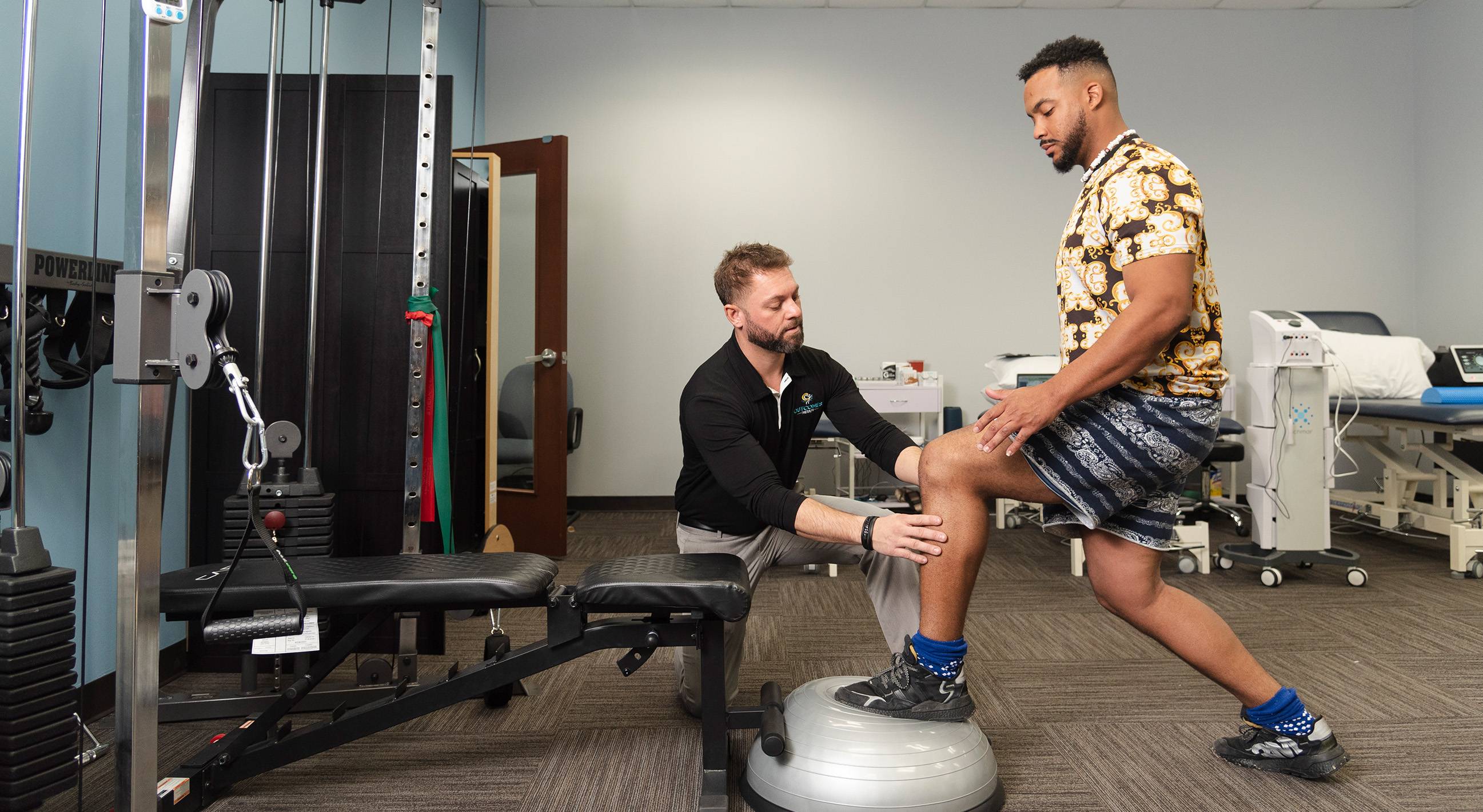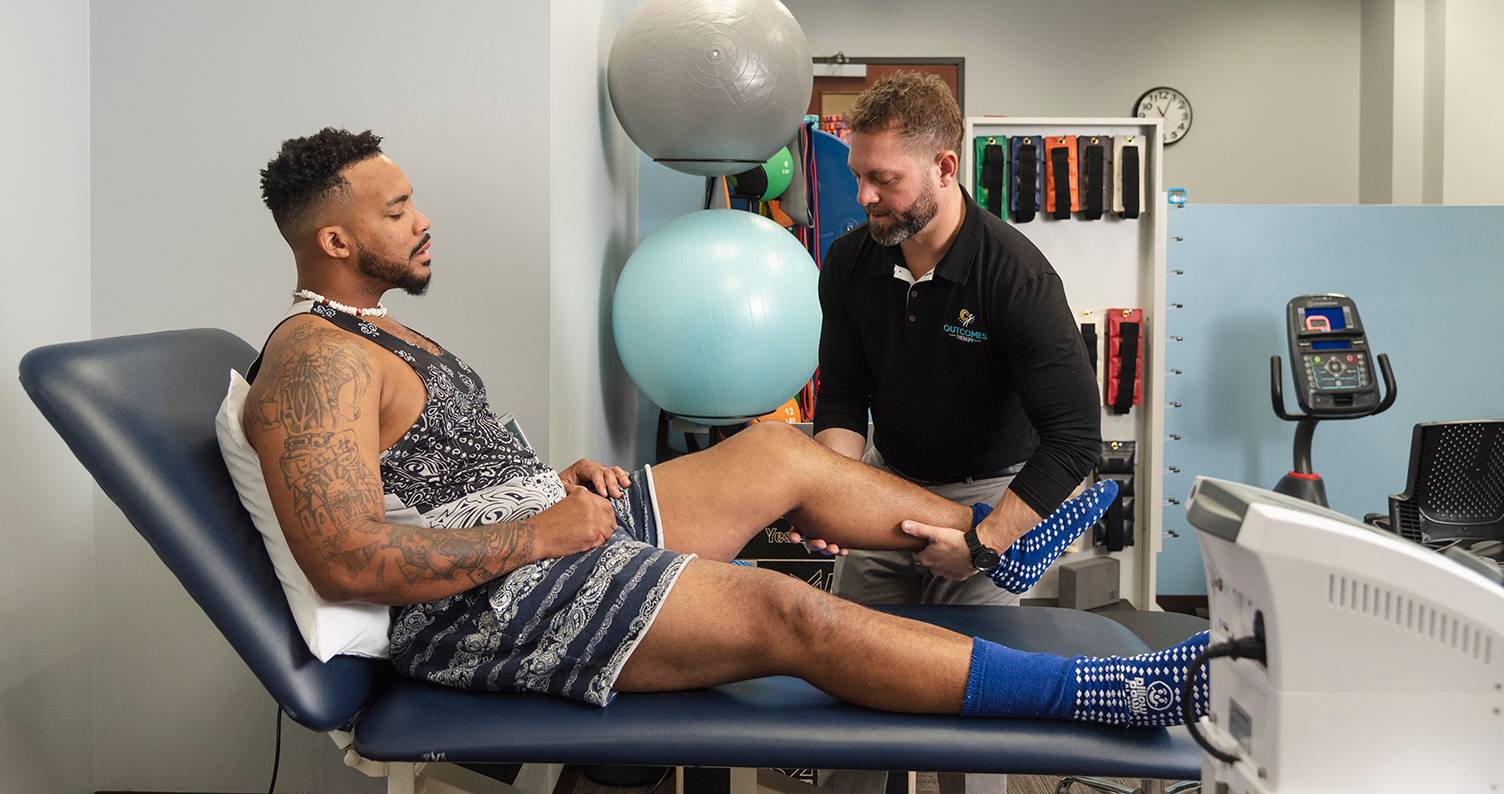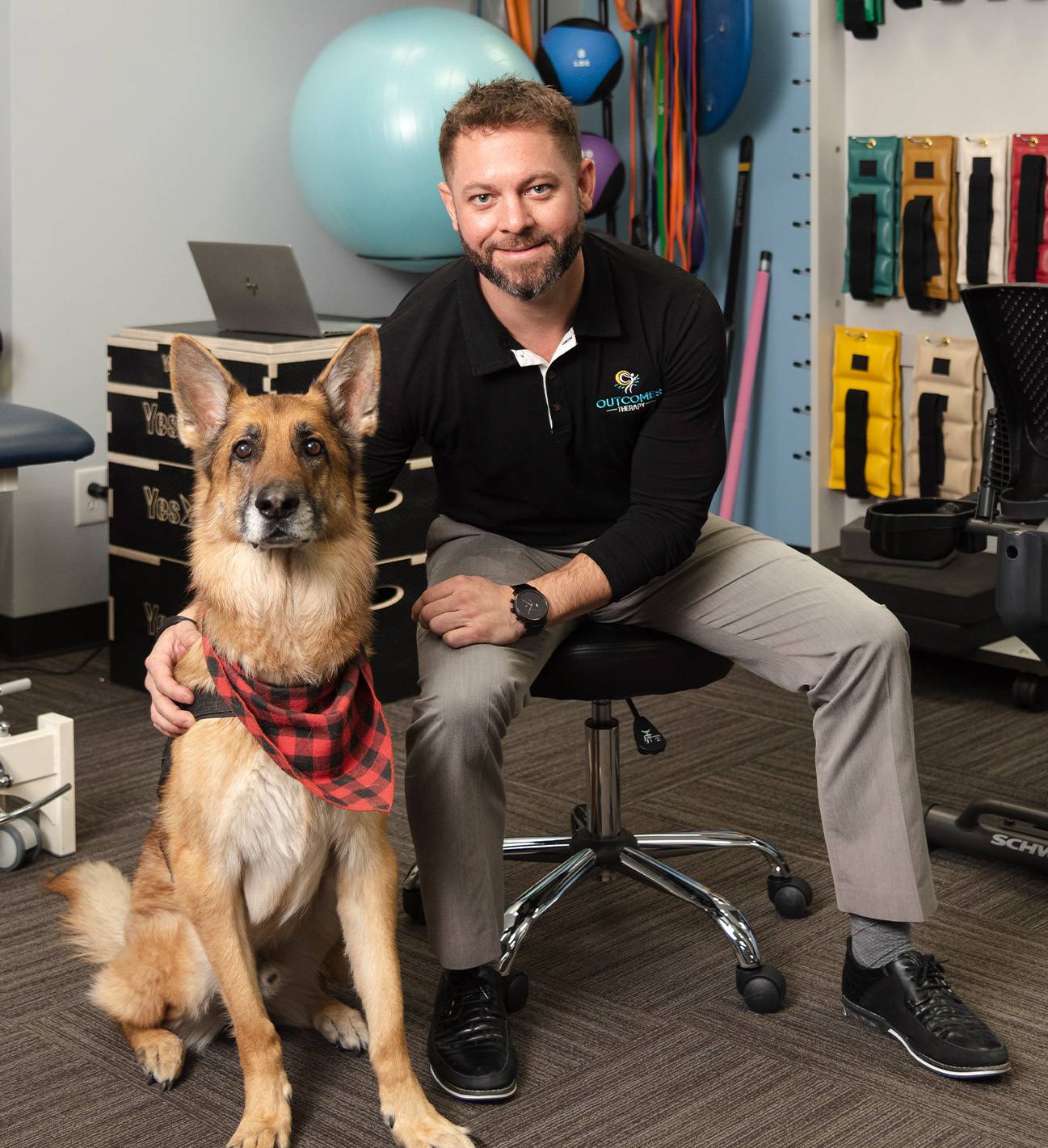
Physical therapist didn't plan to be the boss, but businesses have grown
By Julie Cooper
When Dr. Cory Peterson (D.P.T. ’14) joined the Marines right out of high school, he anticipated it would be a long commitment. When that path derailed after an injury and a medical discharge, his life became college and a career in healthcare.
Peterson, who grew up in Boerne, earned his doctor of physical therapy degree at Texas State, operates Austin-based Outcomes Therapy. It offers physical, occupational, and speech pathology therapies in settings such as outpatient, on-site, assisted living, and wellness centers.

“A lot of people ask — was it the rehab and therapy that I got afterward that made me want to go into physical therapy? No. All the physical therapist did for me was hand me crutches, gave me a home exercise program, said, ‘Can you walk on these? Good luck.’”
Peterson says he chose physical therapy because it seemed to combine his interests in fitness and the human body. “I wanted to be in the medical profession. Physical therapy spoke to me because it covered pretty much each one of those categories,” he says.
After graduating from Texas A&M University-Corpus Christi, Peterson worked in outpatient orthopedics as a technician. He also volunteered with Kinetic Kids, a San Antonio-based program that fosters fitness and recreation for families and children with special needs.
When it came time to get an advanced degree, Peterson looked to Texas State — one of the first universities in the state to offer the DPT, which replaced the bachelor’s and master’s programs. Graduates who earn the DPT from a program accredited by the Commission on Accreditation in Physical Therapy Education can practice after passing the state licensure exam.
Peterson says initially he didn’t land an interview with the College of Health Professions. That’s when he phoned the university asking for information about what would make him a more appealing applicant the next time. He spoke with Dr. Barbara Sanders, then director of the Department of Physical Therapy. “I’m so grateful that she took the time to help me with the entire process. In the conversation she mentioned that I was right there on the cusp.” When another applicant backed out, Peterson got the interview and was ultimately accepted.
“The leadership from the faculty is outstanding and they really did set a great example for people to be encouraged to take part in their professional organizations, which I did. I think that resonated with me — just being involved, making sure that you take professional accountability for the direction our industry is going,” he says.

He never intended to start his own business, but in 2015 he did just that. “At the beginning it was me seeing the patients, doing the client relationship management system, putting together the website, and finding the clinic space. Our first outpatient clinic was attached to a gym. Whenever I wasn’t seeing patients in the clinic, I’d go see patients for home health to keep that going.”
The business has grown to include about 90 employees, and Peterson credits his team, along with co-owner Laurie Prater, for their success. Prater is an occupational therapist with administration skills, clinical experience in geriatrics, and an interest in Parkinson’s disease.
Outcomes Therapy offers a mobile outpatient component and home health therapists. “We also started seeing patients in our first standalone clinic where we offer speech therapy and physical therapy. We are treating a variety of orthopedic and neurological conditions,” Peterson says.
There are also the assisted living clinics and a clinic inside a San Antonio wellness center for veterans. Peterson is looking into partnering on a cardiac rehab facility and possibly a women’s health facility. Currently, the team sees about 400 patients a week. Peterson says he hopes to connect with Dr. Steven Spivey, clinical associate professor in the Department of Physical Therapy, about Texas State interns working in his clinics.
When he isn’t working, Peterson says he enjoys being with friends, making music with the “patio” band he plays in, or enjoying Austin’s outdoor activities with his dog, Mason.
“I feel like having a sense of purpose is very, very important for anybody,” he says, then adds: “Your contribution to the workforce and, of course, the way we can change so many people’s lives through the services we provide” is of equal importance. ★